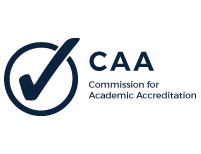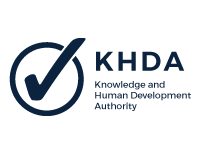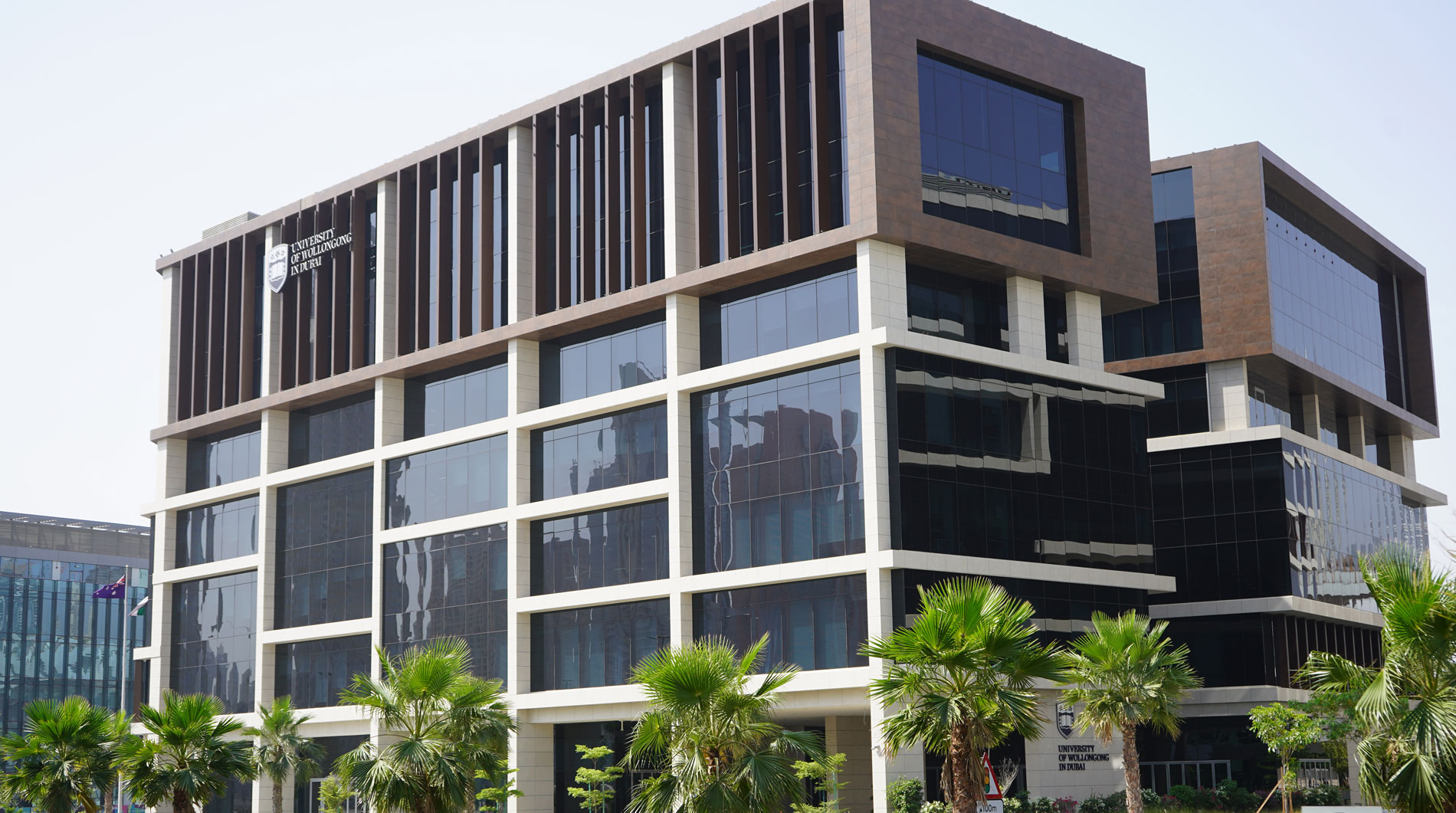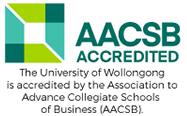- Home
- Degrees
- Undergraduate
- Business & Commerce
- Bachelor of Business (Business Analytics)
Bachelor of Business (Business Analytics)
Duration
3 Years Bachelor Degree
(24 subjects)
4 Years Bachelor Degree
with Integrated Freshman Year (32 subjects)
Classes commence
| September (Autumn) |
| January (Winter) |
| April (Spring) |
Yearly Fees*
AED 60,429 / USD 16,466
*VAT 5% inclusive
Note: Yearly fees will vary depending
on number of subjects enrolled in
In the increasingly dynamic and digital world where data is touted to be the new ‘oil’, all businesses are compelled to undertake global disruption and transformation, aided by data analytics.
- A Gartner survey of CEOs and senior executives revealed that Artificial Intelligence and Analytics is reported as the most impactful new technology for the third year in a row.
- The U.S. News & World Report’s annual job ranking list of 2022 showed that data scientists and analysts continue to be top careers, offering competitive salaries, opportunity for advancement, and a healthy work-life balance.
- A 2020 Burtch-Works study of data science salaries reported the latest salary trends based on experience. Entry-level data scientists have a median starting salary of $95,000 while experienced data scientist salaries range from $165,000 $250,000.
- According to a report by IBM, there will be a 39% growth in employer demand for data professionals
The Bachelor of Business major in Business Analytics degree is designed to prepare students to develop solid skills in data analytics for the challenges they will face as a business leader in today's rapidly changing environment. The program is taught as a combination of lectures and hands-on exercises in our ‘Data Analytics Lab’ using state of the art data science and analytics software.
The Program is organized around five key themes:
- Theme 1: Foundations of Business in Industry 4.0
This incorporates subjects related to accounting, marketing, organizational behavior, operations management, finance, statistics and others. - Theme 2: Data Analytics Technologies for Digital Disruption
This incorporates subjects covering cutting-edge data analytics, artificial intelligence (AI), machine learning (ML) and deep learning (DL) tools and techniques using industry standard software like Statistical Analysis and Systems (SAS) Viya, Structured Query Language (SQL) and Python through Jupyter Notebooks. - Theme 3: Business Transformation through Data Analytics
This incorporates subjects covering the application of data science and analytics technologies in micro settings of an organization’s business functions (like accounting, human resources, operations, marketing and the like) as well as in macro settings of consumer markets, financial markets, labor markets and economic development across countries and regions. - Theme 4: Broadening Horizons
This theme incorporates a host of subjects’ students can choose as electives to augment and enhance their learning experience in business analytics. Such subjects can range in the areas of digital marketing, financial technologies, and other areas of management - Theme 5: Industry-based practicum
This is an industry-based analytics project where students will work on a real-life business scenario and develop a data analytics solution in a live or a stimulated environment.
Students who have excelled academically at school and meet our advance entry requirements can finish their bachelor's degree in three years, instead of the existing four-year programs. Any prospective student that does not directly qualify for an advance entry three-year program, is still able to enrol in any of our bachelor’s degree, through a one-year Freshman Year.
Admission requirements for UOWD depends on the type of high school curriculum you have followed. The requirements based on the most common high school curricula are listed below:
| School System | Bachelor Degree Advanced Entry (3 Years) |
Bachelor Degree Direct Entry (4 Years) |
|---|---|---|
| UAE Al-Thanawiyya Al-Aama |
N/A | Elite or Advanced Track 70%, General Track 75% |
| Arab Countries Al-Thanawiyyah Al-Aama |
N/A | 70% |
| American High School Diploma | Overall average grade of C (70% or 2.5/4.0) + SAT 1100 |
Overall average grade of C (70% or 2.5/4.0) |
| Bangladesh HSC |
GPA of 4.0 / 5.0 | GPA of 3.0 / 5.0 |
| Brazil Brazil Higher Secondary Certificate |
N/A | 60% |
| British GCE Curriculum | Minimum 5 IGCSE/GCSE subjects and Minimum of “CCD” in A levels |
Minimum 5 IGCSE/GCSE subjects and 2AS/ 1A level subject(s) |
| Chinese Senior High School | 80% | 60% |
| Colombia Título de Bachiller Académico |
N/A | 3 out of 5 or 6 out of 10 |
| International Baccalaureate Diploma | 25 Points | 21 Points |
| India CBSE & ICSE, Grade 12 |
65% | 50% |
| Iran Pre-University Certificate |
14 | 11 |
| Japan Upper Secondary School Diploma |
3.8 out of 5 | 2.5 out of 5 |
| Kenya | 60 | 31 |
| Mexico | N/A | 6 out of 10 |
| Nepal School Leaving Certificate Examination |
3 out of 4 | 2.3 out of 4 |
| Nigeria WAEC & NECO |
N/A | Minimum of 7 subjects with no more than 1 “Pass” |
| CIS Countries Attestat |
N/A | Average 3/5 |
| South Korea CSAT |
77.5% | 70% |
Notes:
- All students applying for these programs are required to have an EmSAT in Mathematics with a score of 600 or equivalent.
- Students with qualifications from other curriculum should contact the Student Recruitment and Admissions department at UOWD to determine their eligibility.
- All students applying from non UAE MoE curriculum must provide an equivalency of their Secondary School Certificate from the Ministry of Education, UAE; stating the completion of Grade 12.
- A student who does not satisfy the criteria for Equivalency of Secondary School Certificate, may be subject to conditional admission, based on receiving a Letter of No Objection to Conditional Admission issued by the Ministry.
At UOWD, all classes are taught in English and in order to enrol in a bachelor’s degree you will need to submit one of the following certificate of English language proficiency:
| English Language Testing | Bachelor Degree Advance Entry (3 Years)* |
Bachelor Degree Direct Entry (4 Years)** |
|---|---|---|
| IELTS Academic |
Overall IELTS (Academic) score of 6.0 & Minimum score of 6.0 in Reading & Writing Minimum score of 5.0 inListening & Speaking |
Overall IELTS (Academic) score of 5.0 & Minimum score of 5.0 in Reading & Writing |
| TOEFL Internet-based |
79 with not less than 20 in Writing, 18 in Reading, 17 in Listening, 16 in Speaking |
61 |
| TOEFL Computer based |
213 with a 4.0 TWE/Essay Writing |
173 |
| TOEFL*** International paper based |
550 with a 4.0 TWE/Essay Writing |
500 |
| EmSAT Achieve – English |
1400 | 1100 |
Notes:
* Students with a minimum overall score of 6.0 in academic IELTS and no more than one score (either in reading or writing) between 5.0 and 6.0 will be given the opportunity to complete a remedial subject in the first semester as a condition for progression.
** Students with a minimum overall score of 6.0 in academic IELTS (or equivalent) and a minimum score of 6.0 in reading and writing(or equivalent) are eligible for advanced standing for English Language subjects.
*** Students admitted under this criterion must complete the test at AMIDEAST.
If you are seeking advanced standing status, you will need to submit an official academic transcripts showing all courses studied and the grades obtained, syllabus details (including information on course content) for the courses you have successfully completed and an explanation of the grading system.
To make an application for your chosen program, complete the online application form and submit it along with all your supporting documentation (see below) prior to the application deadline.
Late applications may be accepted subject to the availability of places but applicants are encouraged to apply as early as possible.
Please ensure that all these documents accompany your application for admission form submittal:
- An original or certified copy of your secondary school records
- A Statement or Certificate of Completion of secondary school
- Proof of your English language proficiency
(Note: Results from IELTS & TOEFL tests may be sent to the University directly from the IELTS or TOEFL testing centres quoting the UOWD institution code IELTS: AE109 / TOEFL: 7907)
- UAE ID (if applying from within the UAE)
- A copy of your passport (and Residence Visa, if resident in the UAE).
Additionally, if you are seeking advance standing in your chosen program:
Certified copies of official academic transcripts showing all courses studied and grades obtained, syllabus details (including information on course content) of the courses you successfully completed and an explanation of the grading system.
All applicants for admission who have completed the Thanaweya Al-Amma must get their certificates attested by the UAE Ministry of Education.
Applicants from all other curriculum, who have completed their high school from UAE, are required to obtain equivalency of their high school qualifications from the UAE Ministry of Education.
In these circumstances, you will be provisionally admitted to the University and permitted to commence the first semester of study, subject to you obtaining the required attestation/equivalency.
You must have your secondary school records and Certificates of Completion certified by:
- The issuing Board of Secondary Education OR a recognised authority for secondary education
- The Ministry of Foreign Affairs in the host country
- The UAE Embassy in that host country OR the Embassy of the host country in UAE must attest the authenticity of the documents and attestations and the UAE ministry of Foreign Affairs.
In special cases where complying with conditions (2) and (3) are not feasible, the certificates may be verified against originals by Embassies in the UAE and the UAE Ministry of Foreign Affairs.
In these circumstances, you will be provisionally admitted to the University and permitted to commence the first semester of study.
If you are unable to secure the attestations as outlined above you will be asked to sign a “Consent to Provide Documents” form agreeing to secure the equivalency. You will be permitted to commence your studies at UOWD, but will be given a maximum of one semester to obtain the attested certificate(s). UOWD reserves the right to take appropriate action against any applicant who cannot secure the appropriate documentation in this time, which may result in the termination of the student’s enrolment at UOWD.
For more information or assistance on attesting documents from outside UAE, click here.
Program Structure
To qualify for the Bachelor of Business (Business Analytics), a candidate shall accrue an aggregate of at least 144 credit points comprising of subjects from a common business subjects, specialised subjects required for major, general electives, general education subjects and a final year project.
Choose 1 Elective from the following options
Choose 1 UAE Studies Subject
Compulsory Arabic Language Subject or Challenge Test
General Elective Requirement
- Module 1: Design Thinking
- Module 2: Entrepreneurship
- Module 3: Growth and Leadership
Choose 1 subject from the following options
Capstone Subject
Choose Any 3 Business Subjects as Elective
Click here to view all business subjects
Program Outcomes
- Prestigious and Accredited Degree: Upon completion of the program, all students will get a Bachelor’s degree from University of Wollongong Australia, a university in the top 1% of the world universities, accord to QS World University rankings. This degree is fully accredited in the UAE by Commission for Academic Accreditation (CAA) and Knowledge and Human Development Authority (KHDA).
- Professional Certification: As a part of the collaboration of UOWD with IBM®, all students can get Professional Certification from IBM after completion of a number of courses in the program.
- Career-Ready Skills: The completion of the program will equip the students with practical, hands-on and job ready skills in business analysis such as software like Statistical Analysis and Systems (SAS) Viya, Structured Query Language (SQL), Python using Jupyter Notebooks, R and Big Data frameworks. This will enable them to be productive from day one at their job role after employment.
- Masters Study Opportunities: Should students wish to pursue further study after completing this Bachelor’s degree, UOW Dubai offers a several Master's degree programs under the Faculty of Business.
The completion of the program will open up a world of global career opportunities like
- Data Scientist
- Business Intelligence Analyst
- Business Analyst
- Data Engineer
- Management Consultant
- Market Research Analyst and many others
With the global nature of this degree, you will be equipped to work in any industry in private, semiprivate or government sector in any region of the world.
Accreditation and Recognition
All programs at the University of Wollongong in Dubai are accredited by the Commission for Academic Accreditation (CAA) of the UAE Ministry of Education and are licensed by the Knowledge and Human Development Authority (KHDA). They are also quality assured by UOW, which is registered with the Tertiary Education Quality and Standards Agency (TEQSA), the national regulator of the higher education sector in Australia.
Also, all business programs of the University of Wollongong are accredited by The Association to Advance Collegiate Schools of Business (AACSB).
Students will be issued a UOW Australia degree upon graduation.


Professional Accreditation
Association to Advance Collegiate Schools of Business (AACSB)
The Association to Advance Collegiate Schools of Business (AACSB) provides an international seal of approval for business programs that ensures the educational needs of students are met through high quality, continuous improvement and excellence in education. This globally recognised accreditation has been awarded to only the top five percent of the world’s business schools.

Dr Arijit Sikdar
Associate Professor
(Director Undergraduate)
Dr Arijit Sikdar has more than 15 years teaching and research experience in leading business schools. His research interests include strategic management issues related to technology and innovation, entrepreneurship and supply chain strategies.
Read MoreFaculty

Open Day
Attend our next Open Day on Saturday, 20 April 2024.
Join our experts to learn more about our degrees and how you can enrol at UOWD.




